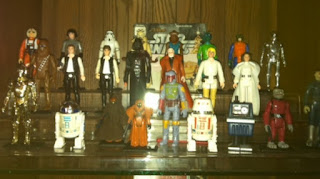Out With The Wash
Update: more to the story.
Read this somewhat surprising story about a team of authors finding their gay character edited out of their YA novel. A really interested discussion about traditional publishing and YA in general follows. The authors present their choices at the end, but none of them include going independent.
I feel indie-publishing should be an option. I am all for getting the Big 6 to evolve, but with this story and others this week, it seems pretty clear that traditional publishing is not changing with the times. If anything, they may be regressing. Case in point:
What do the girls on these covers all have in common?
Excuse the quality of the picture, but you see this quite a bit - all over actually - any time you go to the YA section of a bookstore. A lot of fair-skinned, super modelesque cover girls who I imagine don't exactly represent the characters in their respective books. Who knows, maybe they do.
So I get confused sometimes, whether I'm looking at book covers, or ads for the new season of Gossip Girl or The Vampire Diaries. It's not entirely new or surprising - Justine Larbalestier infamously discovered with the rest of us that the cover girl of her novel Liar didn't exactly match up with the main character Micah, described as biracial. See the difference here:
Justine succeeded in changing the cover, but overall the state of affairs has not improved on the bookshelves. 'White-washing' has a very long and knotted history.
This is of particular relevence to me now because I am currently writing a novel that, technically, is YA. It concerns a teenage girl on a planet where night falls once a year. The plot follows her through this annual night in a mash-up I'm describing loosely as 'a sci-fi John Hughes movie.' The planet otherwise bakes in the day for the rest of the year and is mostly desert. The protagonist certainly is not white, blonde, and blue-eyed. I never describe her physical features in the book, and I don't intend to as of right now, but I got to thinking in the bookstore:
Should I?
By not describing these features (I hardly ever do so in any story) am I allowing for too much interpretation? If I sold this book to a traditional publisher, would the protagonist (don't want to give away her name yet) stand a chance of showing up on her own cover? By not stating it, do I forsake an opportunity for non-white readers to recognize themselves in a story they traditionally do not? Or do I potentially encourage white readers to imagine themselves as a non-white character?
If race or sexuality doesn't matter, then does it matter?
Read this somewhat surprising story about a team of authors finding their gay character edited out of their YA novel. A really interested discussion about traditional publishing and YA in general follows. The authors present their choices at the end, but none of them include going independent.
I feel indie-publishing should be an option. I am all for getting the Big 6 to evolve, but with this story and others this week, it seems pretty clear that traditional publishing is not changing with the times. If anything, they may be regressing. Case in point:
What do the girls on these covers all have in common?
Excuse the quality of the picture, but you see this quite a bit - all over actually - any time you go to the YA section of a bookstore. A lot of fair-skinned, super modelesque cover girls who I imagine don't exactly represent the characters in their respective books. Who knows, maybe they do.
So I get confused sometimes, whether I'm looking at book covers, or ads for the new season of Gossip Girl or The Vampire Diaries. It's not entirely new or surprising - Justine Larbalestier infamously discovered with the rest of us that the cover girl of her novel Liar didn't exactly match up with the main character Micah, described as biracial. See the difference here:
This is of particular relevence to me now because I am currently writing a novel that, technically, is YA. It concerns a teenage girl on a planet where night falls once a year. The plot follows her through this annual night in a mash-up I'm describing loosely as 'a sci-fi John Hughes movie.' The planet otherwise bakes in the day for the rest of the year and is mostly desert. The protagonist certainly is not white, blonde, and blue-eyed. I never describe her physical features in the book, and I don't intend to as of right now, but I got to thinking in the bookstore:
Should I?
By not describing these features (I hardly ever do so in any story) am I allowing for too much interpretation? If I sold this book to a traditional publisher, would the protagonist (don't want to give away her name yet) stand a chance of showing up on her own cover? By not stating it, do I forsake an opportunity for non-white readers to recognize themselves in a story they traditionally do not? Or do I potentially encourage white readers to imagine themselves as a non-white character?
If race or sexuality doesn't matter, then does it matter?




Comments